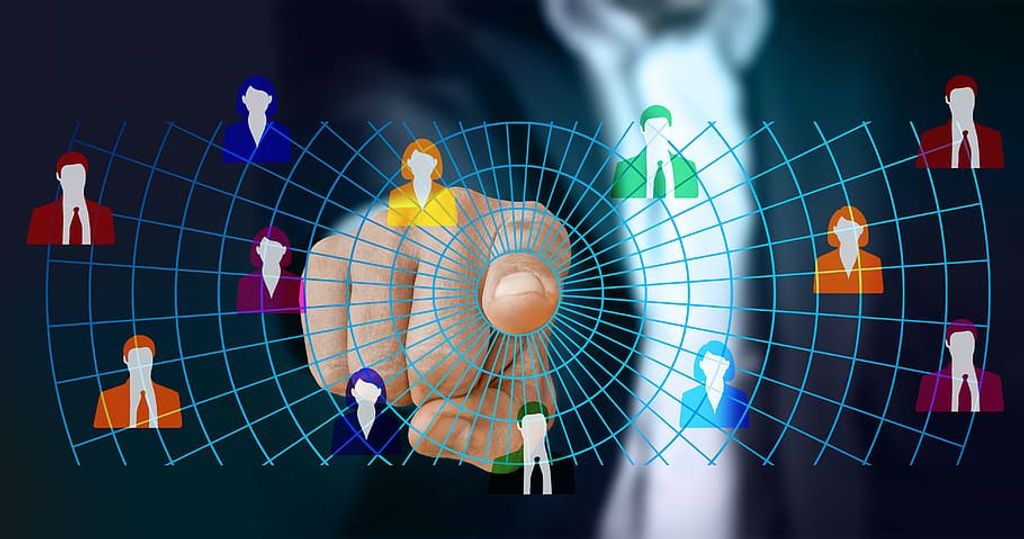Artificial Intelligence (AI) has been rapidly advancing in recent years, revolutionizing various industries and transforming the way we work. The field of Human Resources (HR) is no exception, as AI technology is being increasingly utilized to streamline processes, improve efficiency, and enhance decision-making. However, the integration of AI in HR also poses challenges and limitations that need to be carefully considered. In this article, we will assess the impact of AI in HR and explore the key takeaways regarding its role and potential limitations.
Key Takeaways
- AI can automate recruitment processes, saving time and improving efficiency.
- AI can enhance employee engagement through personalized experiences and real-time feedback.
- AI can improve performance management by providing data-driven insights and predictive analytics.
- Ethical considerations should be taken into account when implementing AI in HR.
- Data privacy and security are crucial aspects to address when utilizing AI in HR.
The Role of AI in Human Resources
Automating Recruitment Processes
Recruitment processes can be time-consuming and resource-intensive. With the advent of AI, organizations can leverage automation to streamline and optimize their recruitment efforts.
AI-powered algorithms can quickly sift through large volumes of resumes and identify the most qualified candidates based on predefined criteria. This not only saves time but also reduces the risk of human bias in the selection process.
AI can also automate the initial screening and shortlisting of candidates, freeing up HR professionals to focus on more strategic tasks.
Additionally, AI can assist in candidate sourcing by scanning various online platforms and databases to identify potential candidates who may not have applied directly.
By automating recruitment processes, organizations can improve efficiency, reduce costs, and ensure a more objective and consistent approach to candidate selection.
Enhancing Employee Engagement
Employee engagement is a critical factor in driving productivity and fostering a positive work culture. With the help of AI, organizations can leverage technology to enhance employee engagement in various ways:
- Personalized Learning: AI-powered platforms can analyze employee skills, interests, and learning preferences to deliver personalized training and development programs.
- Real-time Feedback: AI chatbots can provide instant feedback and guidance to employees, promoting continuous improvement and growth.
- Recognition and Rewards: AI algorithms can analyze employee performance data to identify top performers and recommend appropriate recognition and rewards.
- Work-life Balance: AI tools can assist in managing workloads, scheduling tasks, and optimizing workflows, allowing employees to achieve a better work-life balance.
By leveraging AI to enhance employee engagement, organizations can create a more motivated and satisfied workforce, leading to increased productivity and retention.
Tip: Regularly assess the effectiveness of AI-powered employee engagement initiatives to ensure they align with the organization’s goals and values.
Improving Performance Management
Performance management is a critical aspect of human resources, and AI has the potential to greatly enhance this process. By leveraging AI technologies, organizations can streamline performance evaluations, provide real-time feedback, and identify areas for improvement. Machine learning algorithms can analyze large volumes of data to identify patterns and trends in employee performance, enabling HR professionals to make data-driven decisions. Additionally, AI-powered tools can automate the collection and analysis of performance data, reducing administrative burden and freeing up time for more strategic tasks.
- AI technologies can provide objective and unbiased evaluations by removing human biases and subjective judgments.
- AI can help identify skill gaps and training needs by analyzing performance data and identifying areas where employees may need additional support.
- AI-powered performance management systems can provide continuous feedback to employees, enabling them to make timely adjustments and improve their performance.
In summary, AI has the potential to revolutionize performance management in HR by providing objective evaluations, identifying skill gaps, and enabling continuous feedback. By leveraging AI technologies, organizations can improve employee performance and drive overall organizational success.
Challenges and Limitations of AI in HR
Ethical Considerations
Ethical considerations play a crucial role in the integration of AI in HR. As AI systems become more advanced and autonomous, it is essential to ensure that they are designed and implemented in an ethical manner. Transparency and accountability are key principles that need to be upheld to address potential ethical concerns. Organizations must be transparent about the use of AI in HR processes and how it impacts employees. Additionally, there should be mechanisms in place to hold AI systems accountable for their decisions and actions.
-
Organizations must consider the fairness and unbiasedness of AI algorithms to avoid discrimination and bias in HR decisions. This requires careful evaluation of the data used to train AI models and ongoing monitoring to identify and mitigate any biases.
-
Privacy and data protection are also critical ethical considerations. HR departments handle sensitive employee data, and it is essential to ensure that AI systems comply with data privacy regulations and protect the confidentiality of personal information.
-
Finally, organizations need to address the potential impact of AI on job displacement and employee well-being. While AI can automate certain HR tasks, it is important to consider the implications for job roles and ensure that employees are supported through the transition.
In summary, ethical considerations in the integration of AI in HR involve transparency, accountability, fairness, privacy, and employee well-being. By addressing these considerations, organizations can harness the benefits of AI while mitigating potential risks and ensuring a positive impact on their workforce.
Data Privacy and Security
Data privacy and security are critical considerations when implementing AI in HR. As AI systems collect and analyze large amounts of employee data, organizations must ensure that this data is protected from unauthorized access and breaches. Encryption and access controls are essential measures to safeguard sensitive information. Additionally, organizations should establish data governance policies to define how employee data is collected, stored, and used. Regular security audits and penetration testing can help identify vulnerabilities and strengthen the overall security posture.
To address privacy concerns, organizations should be transparent about the types of data collected and how it will be used. Consent should be obtained from employees before collecting their personal information, and data should only be used for legitimate HR purposes. Organizations should also comply with relevant data protection regulations, such as the General Data Protection Regulation (GDPR) in the European Union.
In summary, ensuring data privacy and security is crucial when leveraging AI in HR. By implementing robust security measures and adhering to privacy regulations, organizations can harness the benefits of AI while protecting employee data.
Bias and Discrimination
Bias and discrimination are significant concerns when it comes to the use of AI in HR. While AI has the potential to streamline and improve various HR processes, it is crucial to address the potential biases that may be embedded in AI algorithms. Bias refers to the systematic favoritism or prejudice towards certain groups or individuals, while discrimination involves treating individuals unfairly based on their characteristics.
To mitigate bias and discrimination in AI-powered HR systems, organizations need to take several steps:
- Diverse and inclusive data: Ensuring that the data used to train AI models is representative of the diverse workforce and free from biases.
- Regular audits and monitoring: Conducting regular audits to identify and rectify any biases that may arise in AI algorithms.
- Transparency and explainability: Making AI algorithms transparent and explainable to understand how decisions are made and identify any potential biases.
Tip: It is essential for HR professionals to work closely with data scientists and AI experts to develop and implement AI systems that are fair, unbiased, and aligned with organizational values.
By addressing bias and discrimination in AI-powered HR systems, organizations can harness the benefits of AI while ensuring fairness and equality in their HR practices.
Conclusion
In conclusion, AI has the potential to significantly impact the field of Human Resources. It can automate recruitment processes, enhance employee engagement, and improve performance management. However, there are also challenges and limitations to consider, such as ethical considerations, data privacy and security, and the potential for bias and discrimination. As AI continues to advance, it is important for HR professionals to carefully navigate these issues and ensure that the use of AI is ethical, fair, and beneficial for all employees. With the right approach, AI can be a valuable tool in HR, complementing human expertise and improving overall organizational effectiveness.
Frequently Asked Questions
Will AI completely replace HR professionals?
No, AI is not expected to completely replace HR professionals. While AI can automate certain tasks and processes, the role of HR professionals in strategic decision-making, employee relations, and understanding human emotions and behaviors cannot be replaced by AI.
What are the benefits of using AI in recruitment processes?
Using AI in recruitment processes can help streamline the hiring process, reduce time-to-hire, and improve the quality of candidates. AI can assist in resume screening, candidate sourcing, and even conducting initial interviews, allowing HR professionals to focus on more strategic aspects of recruitment.
How can AI enhance employee engagement?
AI can enhance employee engagement by providing personalized recommendations and learning opportunities based on individual employee preferences and performance data. AI-powered chatbots can also provide instant support and guidance to employees, improving their overall experience.
What are the potential ethical considerations of using AI in HR?
Some potential ethical considerations of using AI in HR include issues of privacy, data security, and algorithmic bias. HR professionals need to ensure that AI systems are transparent, fair, and unbiased, and that employee data is handled with utmost care and confidentiality.
How can AI improve performance management in organizations?
AI can improve performance management in organizations by providing real-time feedback and performance analytics. AI-powered tools can track employee performance, identify areas for improvement, and provide actionable insights to managers, leading to more effective performance evaluations and development plans.
What measures can be taken to mitigate bias and discrimination in AI systems used in HR?
To mitigate bias and discrimination in AI systems used in HR, it is important to ensure diverse and representative training data, regularly monitor and evaluate the performance of AI algorithms for bias, and involve human oversight in decision-making processes. Additionally, transparency and accountability in AI system development and deployment are crucial.




